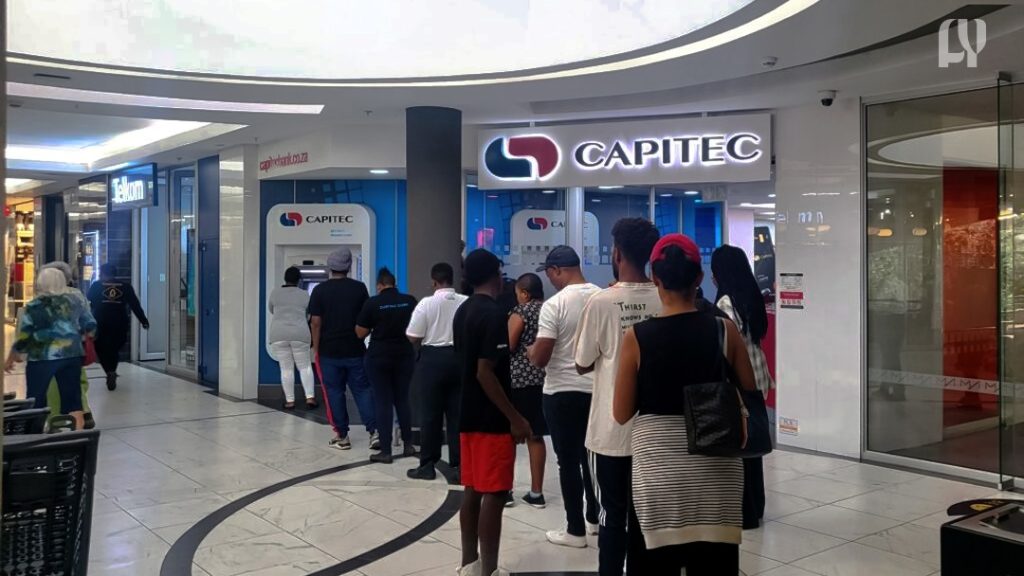The Raw Truth About Capitec: A Bank Built on Black Loyalty, Run by White Power
Listen up, South Africa. We need to talk about Capitec Bank Holdings, the so-called “people’s bank” that brags about 6.5 million Black customers. This bank has become a lifeline for many who were locked out of traditional banking for years. It’s cheap, it’s easy to use, and it feels like a win after decades of exclusion. But here’s the slap in the face: the people running it, the ones pocketing the profits, are mostly White men. And when you point that out, the anger and sadness from both sides become obvious. Those defending it and those who see the unfairness react strongly.
On September 26, 2019, I posted a tweet showing Capitec’s management structure. The list was clear. Gerhardus Metselaar Fourie was named CEO. Santie Louise Botha was listed as chairman. André Pierre du Plessis took the CFO spot. A handful of other White names held the top positions. No Black faces in charge. The replies flooded in, and they hit hard. Some called the executives “brilliant minds” and praised Capitec for serving 12 million customers. Others said Black folks choose the bank for its “better offer,” while brushing off race as a non-issue. One even cheered, “A huge amount of struggling Black Africans are happy with their services!” But let’s cut through the noise. Happiness doesn’t change who owns the bank or who benefits.
Why Capitec Feels Like Family but Isn’t
For millions of Black South Africans, Capitec is more than a bank. It’s a symbol of progress. Apartheid’s brutal legacy left many without access to financial systems. Having a Capitec account feels like a step up. The low fees and mobile app make banking simple, and that builds loyalty. People trust it. They defend it. But trust doesn’t erase the truth. The bank’s leadership remains White-dominated, and the profits don’t trickle back to the communities that keep it alive. Instead, they flow upward to shareholders and executives who don’t look like the customers standing in those long queues.
The bank’s leadership remains White-dominated, and the profits don’t trickle back to the communities that keep it alive. Instead, they flow upward to shareholders and executives who don’t look like the customers standing in those long queues.
This disconnect stings. When you question Capitec’s ownership, it’s like attacking someone’s pride. People feel personally insulted because the bank has woven itself into their lives. They say, “Why make it racial?” or “Start your own bank then!” These responses show a deep wound. The anger comes from a place of love for what Capitec represents: access and dignity. Yet that love blinds many to the reality: the framework hasn’t changed, only the packaging has.
The 2019 Tweet Storm: Anger, Denial, and a Bit of Hope
My 2019 tweet sparked a firestorm. One person snapped, “Stop color scheming like a painter and learn from those brilliant minds!” Another argued, “Capitec is a White company… we didn’t choose it for a Black CEO.” A third shouted, “Rather than being racial, let’s take tips!” The replies showed a mix of frustration and faith. Some saw the racial imbalance but dismissed it as irrelevant. Others praised the bank’s affordability, as if low costs justify the lack of Black leadership. A few dared to hint at the unfairness. They asked what Black customers gain from banks like Standard Bank with Black CEOs.

Those reactions reveal something raw and real. Many Black customers feel stuck. They rely on Capitec because it works for them, but they also sense the power imbalance. The sadness creeps in when you realize this bank, built on their loyalty, doesn’t show their faces at the top. And the anger explodes when anyone dares to call it out. It’s not just about Capitec, it’s about a bigger fight for control in a country still shaped by apartheid’s shadows.
Capitec Syndrome: Loving the System That Holds You Down
Let’s name it what it is: Capitec Syndrome. This happens when people defend institutions that exploit them. It occurs especially when those institutions throw them a crumb of inclusion. Capitec offers affordable banking, and that feels like a victory. But it’s a victory with strings attached. The bank’s White leadership and ownership structure haven’t shifted, even as Black customers pour their money in. This syndrome isn’t unique to Capitec; it’s a pattern across South Africa. We see it with other brands too, where loyalty masks inequality.
Capitec Syndrome. This happens when people defend institutions that exploit them. It occurs especially when those institutions throw them a crumb of inclusion.
Gramsci, a thinker from long ago, called this hegemony. It’s when the powerful get the powerless to agree to their own domination. Capitec does this masterfully. By keeping fees low and services handy, it wins hearts while keeping control in White hands. When someone like me points this out, the response is often, “Why don’t you start your own bank?” That’s a dodge. It ignores how the financial system rules, loans, and all are stacked against Black entrepreneurs. Starting a bank isn’t a fair fight when the deck is rigged.
The Politics of Profit: Who Really Wins?
Politics plays a dirty game here. After apartheid ended, promises of transformation rang loud. Black Economic Empowerment (BEE) was supposed to shift ownership and power. But look at Capitec’s shareholders, Capitec Bank Holdings Limited (ZAE), and you see the same old story. The real winners are the same elite who’ve always held the purse strings. Politicians talk a big game about uplifting Black South Africans, but the banking sector shows little has changed. Capitec’s success relies on Black customers, yet the wealth stays with White executives and investors.
This isn’t about hating Capitec. It’s about facing the truth. The bank serves a need, but it doesn’t serve justice. Every deal feeds a system where Black voices stay silent at the top. People are defending more than just a bank. They are protecting a dream that inclusion can happen without real power shifting. That dream keeps getting delayed, and the frustration builds.
What Can We Do? A Call to Wake Up
So, where does this leave us? Capitec isn’t going anywhere soon. It’s too useful, too embedded in our lives. But usefulness doesn’t mean blindness. We can use the bank and still demand better. Push for Black leadership. Ask where the profits go. Challenge the “start your own bank” nonsense with real talk about systemic barriers. Politicians and regulators need to step up. BEE laws should hit harder. They should force banks to mirror the people they serve.

The sadness here is real. Millions of Black South Africans pour faith into Capitec, only to see the benefits slip away. The anger is justified when the truth gets ignored. And the hope? It lies in waking up. Capitec Syndrome doesn’t have to win. We can love what works and still fight for what’s right. Let’s not let loyalty blind us to the raw, unfiltered truth of who really holds the power.



